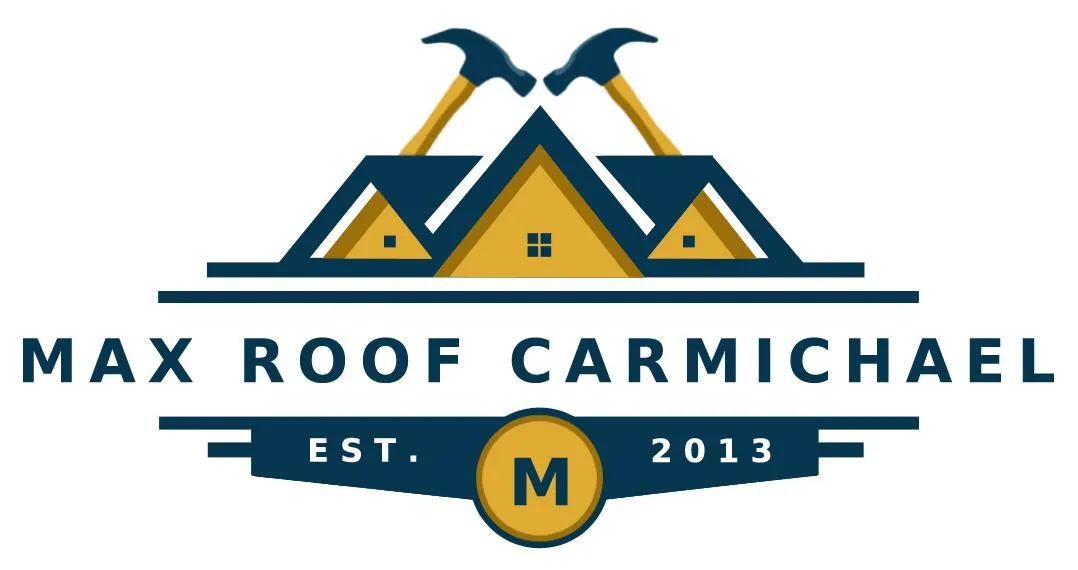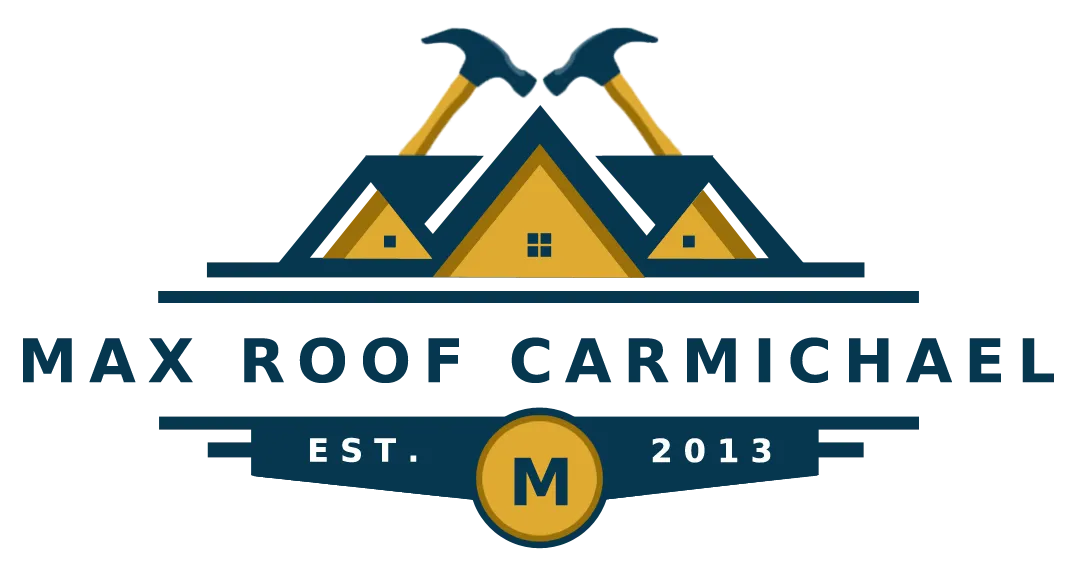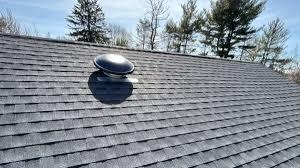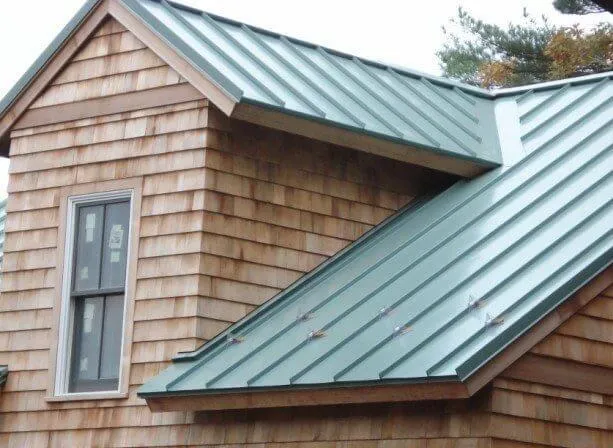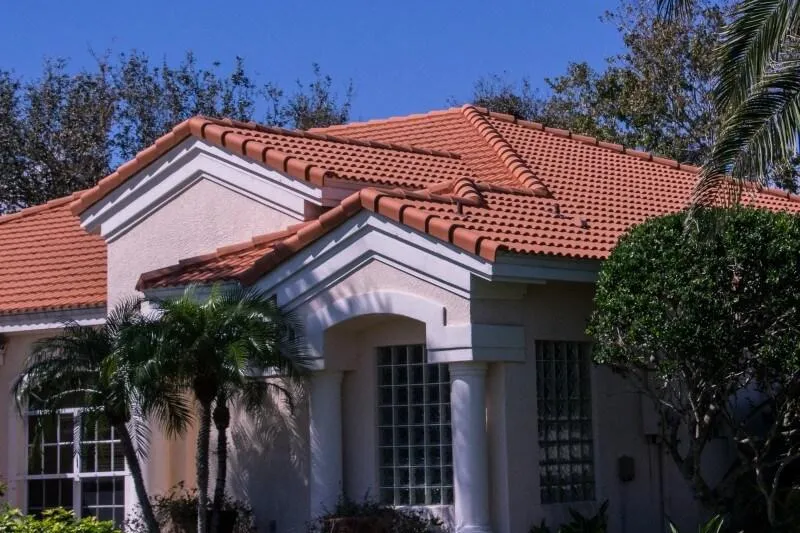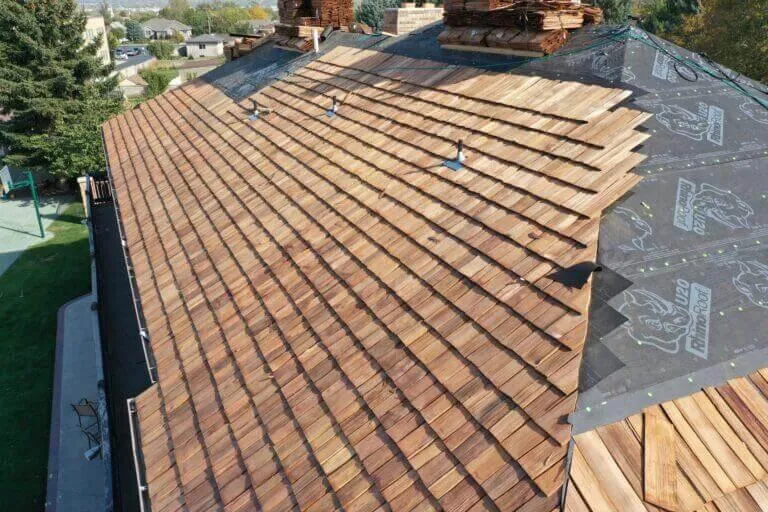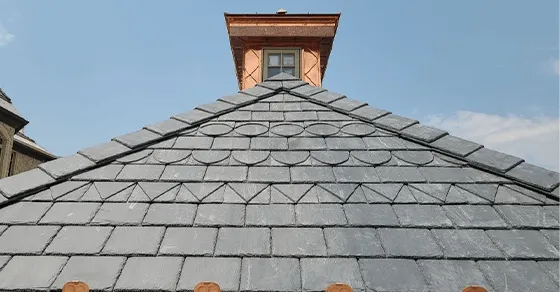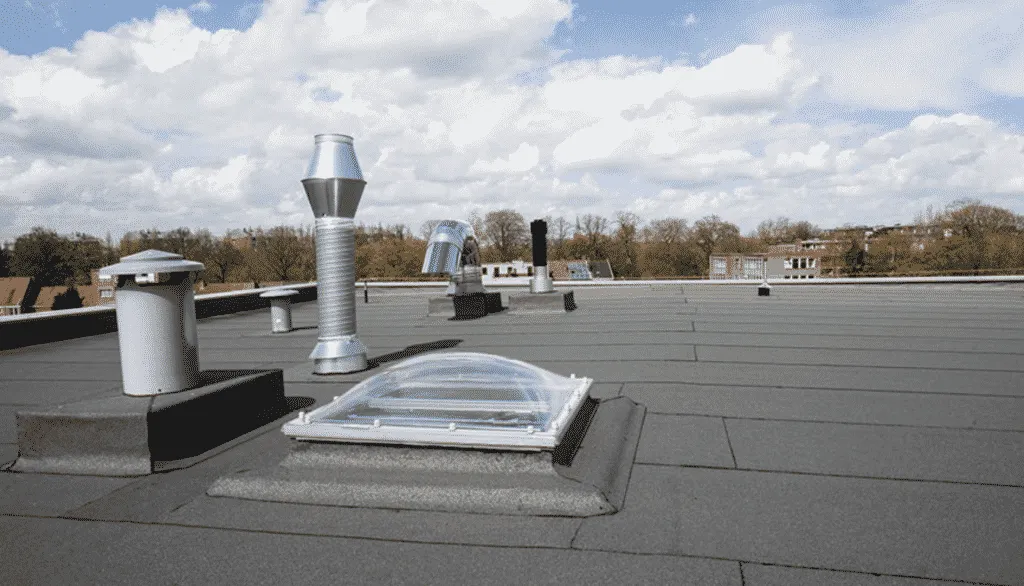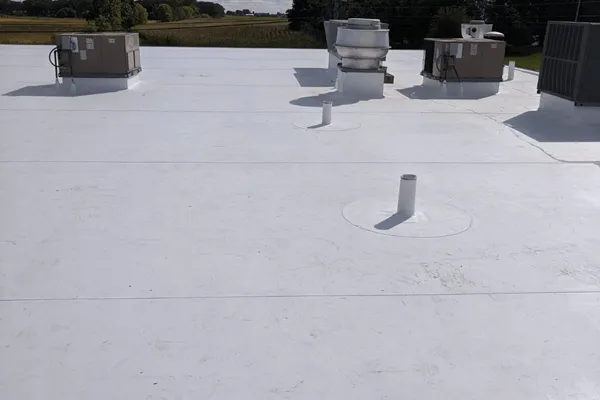Tile Roof Inspection Carmichael
Tile Roof Inspection Carmichael
If you own a home in Carmichael, understanding the importance of tile roof inspections is key to maintaining the integrity of your property. Regular inspections can help you spot potential issues before they turn into costly repairs. In this article, we’ll cover what you need to know about tile roof inspections in Carmichael, including signs that your roof needs attention, what to expect during an inspection, and how to choose the right inspector for the job.
Key Takeaways
Regular inspections can prevent costly repairs down the line.
Look for visible signs like cracks, water stains, or missing tiles.
A thorough inspection includes checking underlying structures.
Choose an inspector with good reviews and relevant qualifications.
Post-inspection, understand the report and plan for any necessary repairs.
Understanding Tile Roof Inspection Carmichael
Tile roofs are known for their beauty and longevity, but even the sturdiest tile roof needs regular check-ups. A tile roof inspection in Carmichael is more than just a quick glance; it's a detailed assessment to catch small issues before they turn into big, expensive problems. Let's break down why these inspections are important and what they involve.
Importance of Regular Inspections
Regular inspections are like preventative medicine for your roof. They help identify potential problems early on, saving you from major headaches down the road. Think of it this way: a small crack in a tile might seem insignificant, but over time, water can seep in, causing damage to the underlayment and even the structure of your home. Regular inspections can also help maintain the aesthetic appeal of your home, ensuring your roof looks its best for years to come.
Here's why you should consider scheduling regular inspections:
Extend the lifespan of your roof.
Prevent costly repairs.
Maintain your home's value.
Common Issues Found During Inspections
Tile roofs, while durable, aren't immune to problems. Inspectors often find issues like cracked, chipped, or missing tiles. These can be caused by weather, falling debris, or even just the natural settling of your home. Another common issue is damage to the underlayment, the protective layer beneath the tiles. This can happen due to age, exposure to the elements, or improper installation. Inspectors also look for signs of water damage, such as stains or leaks, which can indicate more serious problems.
How Inspections Can Save You Money
It might seem counterintuitive to spend money on an inspection to save money, but that's exactly what happens. By catching problems early, you can address them with minor repairs, preventing them from escalating into major, costly projects. For example, replacing a few cracked tiles is much cheaper than replacing an entire section of your roof. Plus, a well-maintained roof can also increase the value of your home, which is a nice bonus. If you are looking for Carmichael roof services, consider getting an inspection.
Think of a tile roof inspection as an investment in your home's future. It's a small price to pay for the peace of mind knowing that your roof is in good condition and protecting your home from the elements.
Signs Your Tile Roof Needs Inspection
It's easy to forget about your roof, but catching problems early can save you a lot of money and stress. Here are some key signs that it might be time to call in a professional for a tile roof inspection.
Visible Cracks or Chips
This is probably the most obvious sign. Walk around your property and take a good look at your roof. Binoculars can help! If you see any tiles that are cracked, chipped, or broken, it's a red flag. Even small cracks can let water in, which can cause bigger problems down the road. It's like a small tear in your favorite shirt – if you don't fix it, it'll just get bigger. Ignoring these visible damages can lead to needing roof repair sooner than you think.
Water Stains on Ceilings
Water stains on your ceilings are a pretty clear sign that something's not right with your roof. If you notice any discoloration, bubbling paint, or actual water dripping, don't ignore it! The source of the leak could be a damaged or missing tile. The water might be traveling a bit before it shows up on your ceiling, so the actual leak in the roof might be somewhere else entirely. It's like trying to find the source of a draft in your house – sometimes it takes a little detective work. Here are some common places to check:
Around chimneys
Near vents
In valleys where two roof planes meet
Loose or Missing Tiles
Missing tiles are a big problem because they leave your roof completely exposed to the elements. Loose tiles are almost as bad because they can easily be blown off by the wind, creating the same problem. If you see any gaps in your roof where tiles should be, or if you find pieces of tile in your yard after a storm, it's time to get an inspection. Regular inspections can help prevent this.
Think of your roof like a puzzle. If a piece is missing, the whole thing is compromised. Don't wait until the puzzle falls apart to do something about it!
What to Expect During a Tile Roof Inspection
So, you're getting a tile roof inspection? Good move! Here's a breakdown of what usually happens. It's not as scary as it sounds, and knowing what to expect can make the whole process smoother.
Thorough Visual Examination
First things first, the inspector will do a walk-around. This means they'll visually check your roof for any obvious problems. They're looking for things like:
Cracked, chipped, or missing tiles
Misaligned or slipped tiles
Damaged flashing around chimneys, vents, and skylights
Accumulation of moss, algae, or debris
Any signs of sagging or unevenness
They might use binoculars for a closer look, especially on higher or steeper roofs. Don't be surprised if they take pictures – it helps them document everything and show you what they found.
Assessment of Underlying Structures
It's not just about the tiles! A good inspector will also check the underlying structures. This includes:
The roof deck (the wood sheathing beneath the tiles)
The underlayment (the waterproof barrier between the tiles and the deck)
The attic (for signs of leaks, water damage, or poor ventilation)
They'll be looking for things like:
Rot or decay in the wood
Water stains or mold growth
Improper installation of the underlayment
Inadequate ventilation, which can lead to moisture buildup
Accessing the attic is important, so make sure it's accessible. If adding reinforcement is needed, they'll be able to spot that too.
Recommendations for Repairs or Maintenance
After the inspection, you'll get a report. This report will outline any problems they found and recommend solutions. This could include:
Replacing damaged or missing tiles
Repairing or replacing flashing
Cleaning the roof to remove moss and debris
Addressing any underlying structural issues
Improving ventilation in the attic
The inspector should explain everything clearly and answer any questions you have. Don't be afraid to ask for clarification or a second opinion if you're unsure about something. Remember, this is your home, and you want to make sure your roof is in good shape. Getting a tile roof inspection Carmichael is a great first step.
They might also suggest a maintenance plan to help keep your roof in good condition and prevent future problems. This could include regular cleaning, inspections, and minor repairs as needed.
Choosing the Right Inspector in Carmichael

Finding the right inspector for your tile roof is super important. You want someone who knows their stuff and can give you an honest assessment. It's like picking a doctor – you wouldn't just go to anyone, right? Same goes for your roof!
Qualifications to Look For
First off, make sure they're licensed and insured. That's a must. You also want someone with experience specifically with tile roofs. Tile is different than asphalt shingles, so you need someone who understands the unique challenges they present. Look for certifications from reputable organizations, too. It shows they're serious about their profession. Don't be afraid to ask about their background and how long they've been inspecting roofs in the Carmichael area.
Questions to Ask
Before you hire anyone, have a list of questions ready. Ask about their inspection process – what exactly do they look for? How detailed is their report? What kind of equipment do they use? Also, ask for references. Talking to previous clients can give you a good sense of their reliability and professionalism. And of course, get a clear understanding of their fees and what's included. You don't want any surprises later on. A good question to ask is about roof inspection services they provide.
Reviews and Recommendations
Online reviews are your friend! Check out sites like Yelp, Google, and the Better Business Bureau to see what other homeowners in Carmichael are saying. Pay attention to both the positive and negative reviews, and see how the inspector responds to any complaints. Also, ask your friends, family, and neighbors for recommendations. Word-of-mouth can be a great way to find a trustworthy inspector.
Getting a few different opinions is always a good idea. It helps you get a better understanding of the condition of your roof and what repairs might be needed. Plus, it gives you a chance to compare prices and find the best value for your money.
Here's a quick checklist to keep in mind:
Are they licensed and insured?
Do they have experience with tile roofs?
Can they provide references?
Are their fees transparent?
Benefits of Professional Tile Roof Inspections
Early Detection of Problems
Think of a professional tile roof inspection as a health checkup for your home. It's all about catching small issues before they turn into big, expensive headaches. A trained inspector knows exactly what to look for, often spotting subtle signs of damage that the average homeowner might miss. This early detection can prevent leaks, structural damage, and other costly repairs down the road. It's like going to the doctor for a regular checkup – you might feel fine, but they can catch things you wouldn't notice yourself. Getting a roof inspection is a smart move.
Increased Lifespan of Your Roof
Regular inspections and maintenance can significantly extend the lifespan of your tile roof. By addressing minor issues promptly, you prevent them from escalating and causing more extensive damage. Think of it like this: a small crack in a tile might not seem like a big deal, but over time, water can seep in, freeze, and expand, causing the crack to widen and potentially damage the underlying structure. Regular inspections allow you to fix these small problems before they become major ones, ultimately prolonging the life of your roof and protecting your investment.
Regular cleaning of debris.
Prompt repair of damaged tiles.
Ensuring proper drainage.
A well-maintained roof not only protects your home but also adds to its curb appeal and overall value. It's an investment that pays off in the long run.
Peace of Mind for Homeowners
Knowing that your roof is in good condition provides invaluable peace of mind. A professional inspection gives you the assurance that your home is protected from the elements and that you won't be facing any unexpected roofing emergencies. This is especially important during storm season when the risk of roof damage is higher. With a recent inspection, you can rest easy knowing that your roof is ready to withstand whatever Mother Nature throws its way. It's a small price to pay for the security and confidence it provides. Consider the benefits of tile roof inspection Carmichael.
Preparing for Your Tile Roof Inspection

Okay, so you've scheduled a tile roof inspection. Great! Now, let's get your home ready. A little prep work can make the whole process smoother and more effective. It's not about hiding anything; it's about making it easier for the inspector to do their job thoroughly. Think of it as setting the stage for a successful check-up.
Clearing the Area Around Your Home
First things first, make sure the area around your house is clear. This means trimming back any bushes or trees that might be touching or hanging over the roof. Inspectors need to be able to walk around the perimeter of your home safely and get a good look at the roof from all angles. Also, move any outdoor furniture, grills, or other items that could obstruct access. A clear path ensures a quicker and safer inspection. It also helps the inspector spot any potential issues with drainage or landscaping that could be affecting your roof's health.
Accessing Attics and Crawl Spaces
Inspectors often need to check the underside of your roof from the attic or crawl spaces. Make sure these areas are accessible. Clear away any boxes or stored items that might be blocking the entrance. If you have pets, it's a good idea to keep them away from these areas during the inspection. Also, be aware that the inspector will need adequate lighting to see properly, so ensure there's a working light source or be prepared to provide one. This part of the inspection is critical for identifying leaks or structural problems that might not be visible from the outside.
Documenting Previous Repairs
If you've had any previous repairs done on your tile roof, gather any documentation you have about them. This includes invoices, warranties, or reports from previous inspections. Sharing this information with the inspector can give them valuable context and help them identify potential problem areas. It also shows that you're proactive about maintaining your roof, which is always a good thing. Even if you don't have formal documents, any information about past issues or repairs can be helpful. For example, if you know there was a roof inspection done a few years ago, let the inspector know.
Preparing for a tile roof inspection doesn't have to be stressful. By taking a few simple steps, you can help ensure that the inspection goes smoothly and that the inspector can provide you with the most accurate assessment of your roof's condition.
Post-Inspection Steps for Homeowners
Understanding the Inspection Report
Okay, so you've got this report now. It might look like a bunch of technical jargon, but don't sweat it! The most important thing is to read through it carefully. Pay close attention to the summary section, which should highlight the key issues found during the inspection. If there's anything you don't understand, don't hesitate to call your inspector and ask them to explain it in plain English. Seriously, that's what they're there for. Look for details about the roof inspection checklist used.
Planning for Repairs
Once you understand the report, it's time to figure out what needs fixing. Get quotes from a few different contractors. Don't just go with the cheapest option; consider their experience and reputation. Ask for references and check online reviews. It's also a good idea to ask them about the materials they'll be using and the warranty they offer. Prioritize the repairs based on the severity of the issues. Leaks and structural problems should be addressed ASAP, while cosmetic issues can wait. Remember that roof repairs can be a significant investment, so plan your budget accordingly.
Maintaining Your Roof After Inspection
So, the repairs are done, and your roof is in good shape. Great! But don't just forget about it. Regular maintenance is key to keeping your roof in tip-top condition and preventing future problems. Here are a few things you can do:
Clean your gutters regularly to prevent water buildup.
Trim any trees that are hanging over your roof.
Inspect your roof yourself a couple of times a year (from the ground, of course!).
Consider scheduling a professional inspection every few years, even if you don't see any problems.
Think of your roof like your car. You wouldn't just drive it until it breaks down, right? You'd get regular oil changes and tune-ups to keep it running smoothly. The same goes for your roof. A little maintenance can go a long way in extending its lifespan and preventing costly repairs down the road.
Wrapping Up Your Tile Roof Inspection
So, there you have it! Keeping an eye on your tile roof is super important if you want to avoid bigger headaches down the road. Regular inspections can save you money and keep your home safe. If you notice anything off, don’t wait too long to call in the pros. Whether it’s a small repair or a full inspection, getting help from a trusted Carmichael roofing company can make all the difference. Remember, a little maintenance goes a long way in extending the life of your roof. Stay proactive, and your home will thank you!
Frequently Asked Questions
Why is it important to inspect my tile roof regularly?
Regular inspections help catch problems early, which can save you money on repairs later.
What are some common issues found during tile roof inspections?
Inspectors often find cracked tiles, loose tiles, or signs of water damage.
How can I tell if my tile roof needs an inspection?
Look for visible cracks, water stains on your ceilings, or any missing tiles.
What happens during a tile roof inspection?
An inspector will check the roof visually, look at the structure underneath, and suggest any needed repairs.
What should I look for when choosing a roof inspector in Carmichael?
Make sure they have good qualifications, ask them questions about their experience, and check their reviews.
What are the benefits of having a professional roof inspection?
You can catch problems early, extend the life of your roof, and have peace of mind knowing your roof is safe.
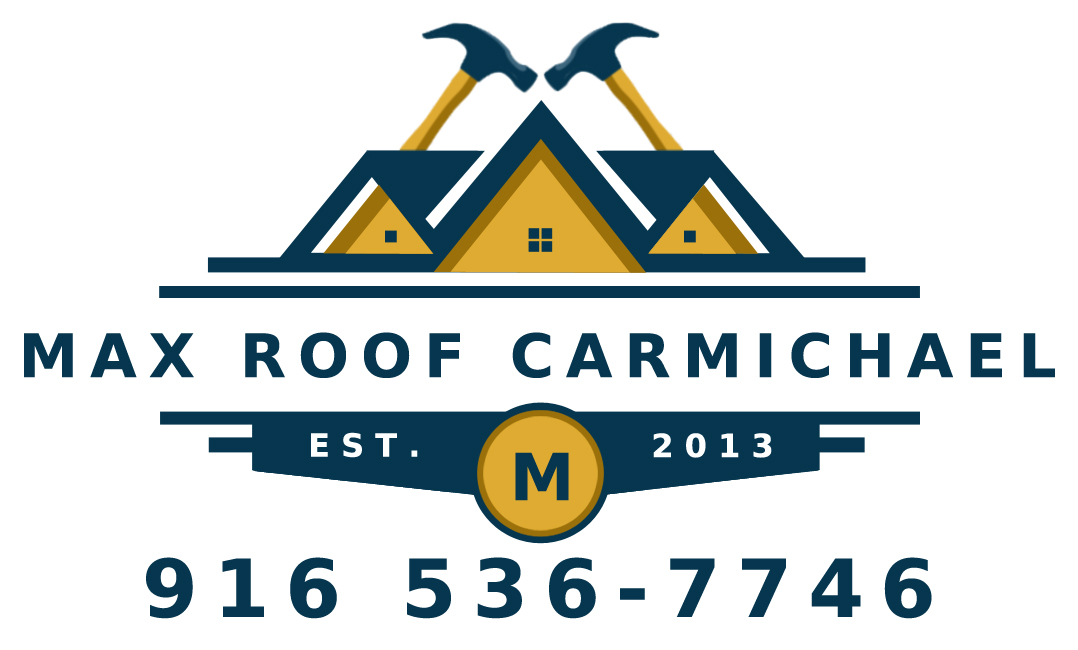
Contact Us To Get A Free Quote!
Roofing We Install In Carmichael
